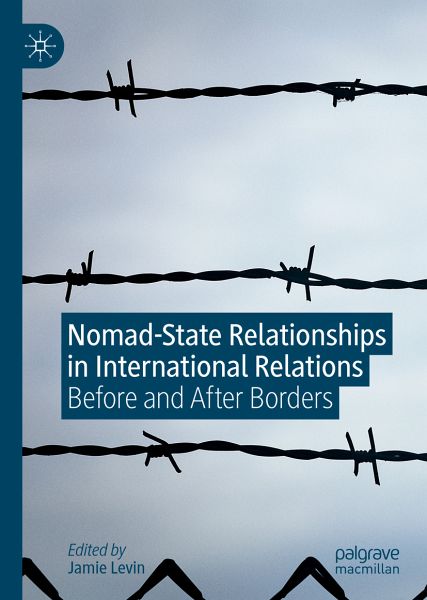
Nomad-State Relationships in International Relations (eBook, PDF)
Before and After Borders
Redaktion: Levin, Jamie
Versandkostenfrei!
Sofort per Download lieferbar
112,95 €
inkl. MwSt.
Weitere Ausgaben:

PAYBACK Punkte
56 °P sammeln!
This book explores non-state actors that are or have been migratory, crossing borders as a matter of practice and identity. Where non-state actors have received considerable attention amongst political scientists in recent years, those that predate the state-nomads-have not. States, however, tend to take nomads quite seriously both as a material and ideational threat. Through this volume, the authors rectify this by introducing nomads as a distinct topic of study. It examines why states treat nomads as a threat and it looks particularly at how nomads push back against state intrusions. Ultimat...
This book explores non-state actors that are or have been migratory, crossing borders as a matter of practice and identity. Where non-state actors have received considerable attention amongst political scientists in recent years, those that predate the state-nomads-have not. States, however, tend to take nomads quite seriously both as a material and ideational threat. Through this volume, the authors rectify this by introducing nomads as a distinct topic of study. It examines why states treat nomads as a threat and it looks particularly at how nomads push back against state intrusions. Ultimately, this exciting volume introduces a new topic of study to IR theory and politics, presenting a detailed study of nomads as non-state actors.
Dieser Download kann aus rechtlichen Gründen nur mit Rechnungsadresse in A, B, BG, CY, CZ, D, DK, EW, E, FIN, F, GR, HR, H, IRL, I, LT, L, LR, M, NL, PL, P, R, S, SLO, SK ausgeliefert werden.












